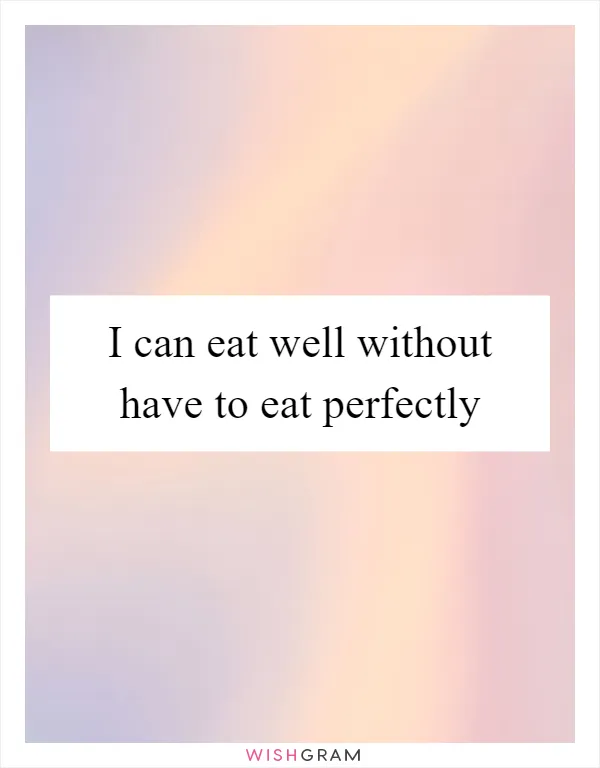I can eat well without have to eat perfectly
Eating well is important for your health and well-being. However, it can be challenging to maintain a perfect diet all the time. The good news is that you don't have to eat perfectly to eat well. The affirmation "I can eat well without having to eat perfectly" is a reminder that you can make healthy choices without feeling guilty or stressed about it.
Eating well means consuming a balanced diet that includes a variety of foods from all food groups. It means choosing whole foods over processed foods, and limiting your intake of sugar, salt, and unhealthy fats. Eating well also means listening to your body and eating when you're hungry, and stopping when you're full.
However, eating perfectly is not realistic or sustainable. It can lead to feelings of guilt, shame, and anxiety when you don't meet your own expectations. It can also lead to disordered eating habits, such as bingeing or restricting, which can be harmful to your physical and mental health.
The affirmation "I can eat well without having to eat perfectly" gives you permission to make mistakes and learn from them. It allows you to enjoy your favorite foods in moderation, without feeling like you've failed or ruined your diet. It also encourages you to focus on progress, not perfection, and to celebrate small victories along the way.
Eating well is a journey, not a destination. It takes time, patience, and practice to develop healthy habits that work for you. It's okay to make mistakes and have setbacks, as long as you keep moving forward. The affirmation "I can eat well without having to eat perfectly" reminds you that you're capable of making positive changes in your diet and lifestyle, one step at a time.
Here are some tips for eating well without having to eat perfectly:
1. Focus on whole foods: Choose foods that are as close to their natural state as possible, such as fruits, vegetables, whole grains, and lean proteins.
2. Practice moderation: Enjoy your favorite foods in moderation, and don't deprive yourself of the foods you love.
3. Listen to your body: Eat when you're hungry, and stop when you're full. Pay attention to how different foods make you feel, and adjust your diet accordingly.
4. Plan ahead: Plan your meals and snacks in advance, so you're less likely to make unhealthy choices when you're hungry or pressed for time.
5. Celebrate small victories: Focus on the progress you've made, rather than the mistakes you
